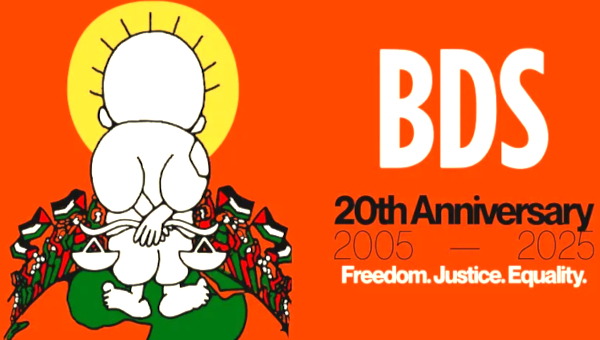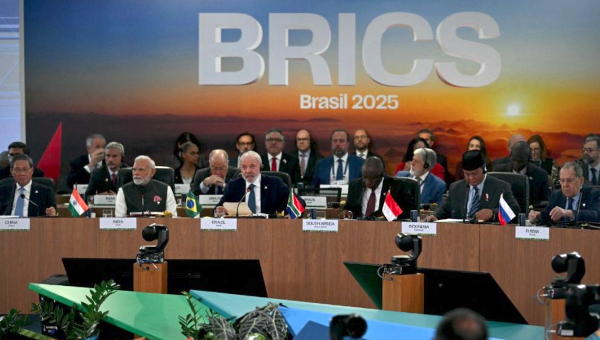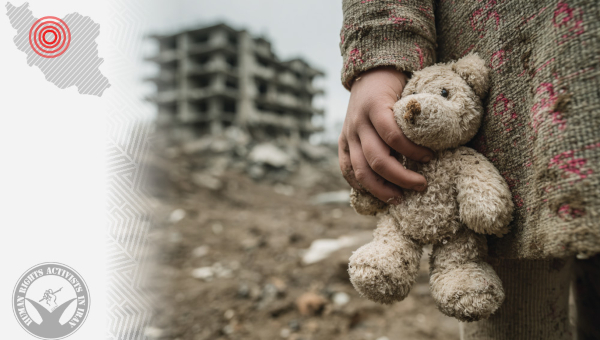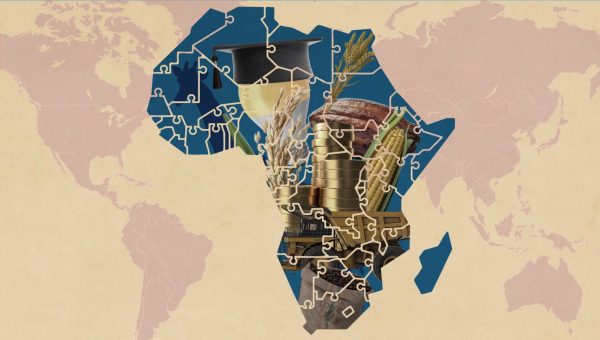Israel’s Message to Iran
On January 17, Israeli Prime Minister Ehud Olmert announced a unilateral ceasefire, where Israel will stop its attacks but continue its military presence. “We have met and
even surpassed our goals,” declared Olmert, as he thanked the Israeli public for their continued support of the 22-day onslaught in Gaza.
To those paying even minimal attention to the developments of this war, this is a perplexing statement. It is evident that Israel’s declared objectives in this war have yet to be realized. Rockets are still being fired from Gaza and the goal of “sustained and durable quiet in the south” has not been attained. Hamas remains in operation in the Strip and, as it stands, does not appear to have lost significant backing from its Palestinian constituency. Further, while Hamas has changed its
political treatment of Israel during the past 3 years, it has not altered significantly its platform during the 3-week war in Gaza. Granted, Israel managed to pummel a number of underground tunnels in the northern and southern tips of Gaza – and with it countless densely-populated civilian neighborhoods – but so long as there is a siege on the Strip there are no assurances that they will not reopen. Worse yet, Israel’s international reputation has suffered where millions of outraged communities around the world have taken their disgust with the brutal onslaught to the streets, demanding their governments cut diplomatic ties with and exert political pressure on the Zionist establishment.
And some governments did. Venezuela expelled Israel’s ambassador on January 6 to protest the offensive in Gaza hours after President Hugo Chavez described the attacks in Gaza as a “holocaust.”
Bolivia followed suit, cutting diplomatic ties with Israel on January 14 with President Evo Morales declaring his intention to “bring genocide charges against top Israeli officials” in the International Criminal Court.
Syrian President Bashar al-Assad deemed invalid the groundbreaking 2002 Arab peace initiative backed by the whole of the 22-member Arab League, and announced the cessation of its own diplomatic talks with Israel. Assad’s call for a comprehensive Arab boycott of Israel was heeded by Qatar and Mauritania on January 16¸ who declared the suspension of their economic and political ties with Israel in protest against the military attack on Gaza.
Even Turkey, Israel’s greatest ally in
the region and mediator to its peace talks with Syria, called Israel’s actions a “crime against humanity.”
Prime Minister Erdogan went so far to argue
that Israel “should be barred from the United Nations” while ignoring international demands for a halt in
attacks, and the union of Turkish operatives affiliated with the Turkish Agriculture Ministry announced a financial embargo on Israel.
It appears that Israel lost. It has failed to deliver on most of its declared goals.
But Israel’s military attack does not only affect the “Palestinian problem” but has widespread regional implications for any future political or military engagement with Iran. “We should work to punish all of the members of the axis of evil…” said Olmert when he announced the ceasefire, “Hamas was supported by Iran, which in addition to trying to achieve regional hegemony is trying to consolidate its power in Gaza.”
If the Gaza onslaught is viewed in the context of Israel’s precarious relationship with Iran, a comprehensive message to the Islamic Republic surfaces, accounting for the seeming inconsistency between Israel’s declared goals and its accomplishments. A quick glance at the human, political, and diplomatic casualties of the war on Gaza outlines Israel’s message to the Islamic Republic and its allies:
Israel has a firm grip on
the Palestinian national leadership
Israel believes it has weakened Hamas’ rule, and by extension, Iran’s presence in Gaza. In exchange, it has solidified its support for the Palestinian Prime Minster Mahmoud Abbas, whose cooperation with the Israeli political and military infrastructure even
surprised senior Fatah members in his own administration. At the same time, Israel has successfully de-legitimized the Abbas-led Fatah party on the Palestinian street.
As one of the first to place blame on Hamas for the bloodshed in Gaza, Abbas is continuously described as a political corpse. Whether using Palestinian Authority forces to violently break up mass protests against the Israeli offensive in the West Bank due to the presence of a few Hamas supporters,
stationing police and special forces at public gathering sites, or failing to attend the Qatari-sponsored Doha Summit due to American and Israel pressure, Abbas has intensified the crisis of confidence between the Palestinian street and its leadership.
The Gaza onslaught has severed Abbas’ fate from that of Hamas. It is no longer the case that Hamas’ loss will be Abbas’ gain. While the capabilities of Hamas are limited and its regime only partially functioning, the group’s military wing still has enough means to
deter Fatah from attempting a coup.
Further, with Iranian support and political backing from the Palestinian public, Hamas will be able to regroup.
As it stands, the Palestinian national project is effectively stalled. Israel has successfully created a warped power vacuum where any potentially emerging Palestinian national figure lacks political clout from either the Palestinian nation or the international community. And without Palestinian leadership there is limited hope to end the Occupation.
Israel has strong allies in the Arab world
The bloodshed in Gaza exposed the mirage of Arab unity. Most recently, the battle of the summits between the Qatari-Syrian and Saudi-Egyptian camps revealed deep political and ideological rifts – often referred to as an “Arab cold war.” Willing to cut diplomatic and economic relations, the former adopts a stronger ideological stance against the Israeli occupation, recognizing the need to address final status issues and include Hamas in the political process. In contrast, in an attempt to secure their own leadership in the Arab world the Saudi-Egyptian camp are micromanaging the occupation, focused the rebuilding of Gaza under Israeli terms instead of dealing with the broader political issues.
Their unwillingness to include Hamas in the political process is also an indication of the threat felt by the Saudi-Egyptian alliance
from Iranian presence in the region. Criticisms by Iranian President Mahmoud Ahmadinejad directed at Arab passivity in the face of a “rare genocide” are echoed on the Arab street, as are demands for economic and diplomatic pressure on Israel as a minimum recourse. In response, this alliance of so-called “moderates” – Egypt, Saudi Arabia, Jordan and the PA – are leading the strategic line against Hamas as part of a broader U.S.-Israeli fight against Iran.
Thus, the Saudi-Egyptian platform is particularly suited to American and Israeli interests: composed of a watered-down ceasefire resolution from the UN Security Council and an interest in ensuring that Hamas will depend on Egypt’s goodwill. As stated
by Egyptian President Hosni Mubarak, “whoever wants to contribute and also see the fruits of his contribution will have to pass through Cairo or through the Palestinian Authority in Ramallah.” It is safe to say that Washington and Tel Aviv should be included on this list.
American support for Israel is unshakable, as usual
Unrelenting American support for Israel is nothing new. At the height of Israel’s organized genocide in Gaza, U.S. Secretary of State Condoleezza Rice signed an arms pact with Israeli Foreign Minister Tzipi Livni providing a series of steps the two allies will take to restrict the flow of weapons and explosives into Gaza.
Iran was very much on the agenda.
Designed to “ensure Hamas is not able to be resupplied via sea, land or air,” the pact calls for the use of a variety of international and political resources by the U.S. and Israel to restrict access to the strip. In this Memorandum of Understanding, the U.S. pledges to “work cooperatively with neighbors and in parallel with others in the international community…work with regional and NATO partners…work with regional governments to enhance U.S. security and intelligence cooperation … ensure the enforcement UN Security Council Resolutions on counterterrorism…[and] fusion key international and coalition naval forces and other appropriate entities to address weapons supply to Gaza.”
In addition to unmitigated support from the UN Security Council, NATO, and regional governments, the Memorandum threatens Iranians with an intensified sanctions regime:
“Enhancement of the existing international sanctions and enforcement mechanisms against provision of material support to Hamas and other terrorist organizations, including through an international response to those states, such as Iran, who are determined to be sources of weapons and explosives supply to Gaza.”
The compilation of diplomatic, political and military tools listed in the pact is an indication of Israeli feelings of insecurity in dealing with the Islamic Republic and anxiety over a relative normalization of U.S.-Iranian relations under an Obama administration. Livni has long warned against an open dialogue with Iran, advocating a hawkish approach to the Iranian nuclear problem. But with the departure of imperial-Bush and the arrival of brand-Obama, America is bracing itself for greater diplomatic engagement with Syria and Iran. Normalization with Iran runs directly against Israeli interests, for worse than potential financial losses from the rise of another American ally in the region, it might just turn the gaze of the Western world from the 30-year old Iranian Regime onto Israel’s 60-year old apartheid system.
Israel has strong European allies
Olmert was clear in his speech on January 17: without the onslaught in Gaza, Israel would not have received a lot of diplomatic gains. Immediately after a unilateral ceasefire was announced by Israel and before it was even implemented, an
unbelievable lineup of EU leaders next to Olmert, Abbas, and UN Secretary General Ban Ki Moon gathered in Egypt praising Israel for its decision.
Pledging “never to harm Israel’s security,” the Sarkozy-led European initiative also expressed their willingness to “provide monitors to prevent arms smuggling into Gaza and supply technology to help locate smuggling tunnels.” And despite the appalling number of casualties the EU maintained: “no reconstruction under Hamas.”
The continued unwillingness of the EU to engage directly with Hamas brings the Palestinian national movement back to square one. Further, the EU’s poor handling of this war stands alongside its failure to condemn Israel’s legal discrimination against its Arab citizenry and brute suppression of protests and dissent by Palestinians in the West Bank – both of which intensified during the Gaza operation.
This war indicated the spread of a robust pro-Israel epidemic in Europe, with states looking to develop a relationship with the “Jewish State” similar to that of the United States.
Finally, Israel is undeterred by
the United Nations and international law
Whatever integrity was left to the United Nations and its associated institutions after the U.S.-led wars on Afghanistan and Iraq dissolved with the Gaza blitzkrieg. Israel attacked Gaza without permission from the UN Security Council, employed disproportionate force throughout the 22-day onslaught, used experimental weapons, and shelled densely populated civilian neighborhoods, buildings, media centers, mosques, schools and UN relief convoys resulting in a spectacular number of casualties.
Granted, Israel did receive strong condemnation from certain prominent political figures in the United Nations. With repeated Israeli attacks on UN sites John Ging, the Head of the UN Relief and Works Agency in the Gaza Strip, said: “I have no confidence whatsoever in their [the Israeli Army’s] assurances of the safety of civilians on the basis of their track record.” Disgust with Israel’s record of violations was also echoed by United Nations General Assembly President, Miguel d’Escoto Brockmann, who noted:
“It seems to me ironic that Israel, a State that, more than any other, owes its very existence to a General Assembly resolution, should be so disdainful of United Nation’s resolutions. Prime Minister Olmert’s recent statement disavowing the authority of Security Council Resolution 1860 clearly places Israel as a State in contempt of international law and the United Nations.”
Brockmann also condemned international complicity in dealing with the Palestinian question, pointing out the dysfunctionality of the United Nations:
“But there is still another violation – one in which we, as the United Nations, are directly complicit. The blockade of Gaza, which has now been going on for 19 months, has been directly responsible for the widespread humanitarian crisis in Gaza even before the current Israeli assault began… Yet the blockade has been endorsed, at least tacitly, by powerful parties grouped in the Quartet, placing this Organization in a dubious role and in violation of our obligations under the Charter and international law.”
Nevertheless, the Security Council resolution calling for an “immediate, durable and fully respected ceasefire” was blatantly ignored, and Israel’s war on Gaza began as it ended: unilaterally. While Brockmann’s criticisms of the international system are reflected in Israel’s contempt for UN resolutions, it is unlikely that Western powers will adopt his remedy of “serious and expeditious diplomacy instead of false promises.”
Instead, a giant Goliath launched its war machine on a tiny, starving, and oppressed David, and the world did not react. It still hasn’t. This is the precedent to which Israeli policymakers will refer in future military engagements. Of course, those familiar with the history of the Jewish State would know that this has been the case for over 60 years, even before the dawn of the Islamic Republic. But until the numbing anger of those bearing witness to this and other slow-motion genocides propels a swift collective demand for policy-makers and leaders to succumb to the voices on the streets, the people of the region will continue to suffer. •





